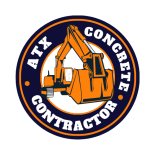Foundation repair is a multifaceted process that not only aims to repair existing damage but also to fortify the structure for the long term. As homeowners embark on this journey, understanding the budgetary considerations becomes crucial. In this exploration, we delve into the intricacies of foundation restoration costs, shedding light on the elements that contribute to the budget and why these investments are essential.
The Foundation Assessment: Investing in Precision
The foundation repair assessment marks the commencement of the foundation repair process and is a cornerstone in understanding and planning for costs. This initial phase involves a thorough examination by professional foundation engineers. The purpose is not only to identify visible damage but to uncover the root causes beneath the surface. The cost associated with this assessment is an investment in precision. The insights gained from a comprehensive evaluation guide the entire restoration plan. Engineers analyze soil conditions, structural elements, and potential risks, laying the foundation for a targeted and effective restoration strategy.
The assessment cost is not merely an added expense but a strategic financial decision. It prevents a one-size-fits-all approach to restoration, ensuring that the subsequent steps are tailored to the specific needs of the foundation. Early identification of issues during the assessment can also prevent more extensive damage, potentially saving homeowners from higher costs in the future.
Elements Shaping Restoration Costs: Materials, Techniques, and Expertise
Several key elements shape the costs associated with foundation restoration, each playing a crucial role in the success and longevity of the project. The choice of materials is a significant factor influencing the budget. Depending on the nature and extent of the damage, various materials such as concrete, steel, or specialized polymers may be employed. The cost of these materials is directly tied to their efficacy in addressing the specific issues identified during the assessment.
Equally impactful are the techniques used in the restoration process. Foundation issues require tailored solutions, and the selection of techniques—whether it’s underpinning, piering, or slabjacking—contributes to the overall expenses. The intricacy of the chosen technique and its compatibility with the unique challenges of the foundation directly influence the budget.
The expertise of professionals involved in the restoration process is another crucial element shaping costs. Skilled labor is essential for tasks ranging from excavation to the implementation of repair solutions. Specialized equipment, necessary for various stages of the restoration, adds to the overall expenses. While labor and equipment costs may form a substantial portion of the budget, they are indispensable for ensuring the restoration is carried out with precision, adhering to industry standards and safety protocols.
In conclusion, understanding the budget for foundation repair is not merely about the immediate costs; it’s a strategic investment in the stability and longevity of a building. From the foundational assessment that guides the entire restoration plan to the selection of materials, techniques, and the expertise involved, each aspect plays a pivotal role in building a solid financial foundation. Homeowners who grasp the necessity of these investments are not just restoring their foundations; they are fortifying their structures for a resilient and enduring future.
